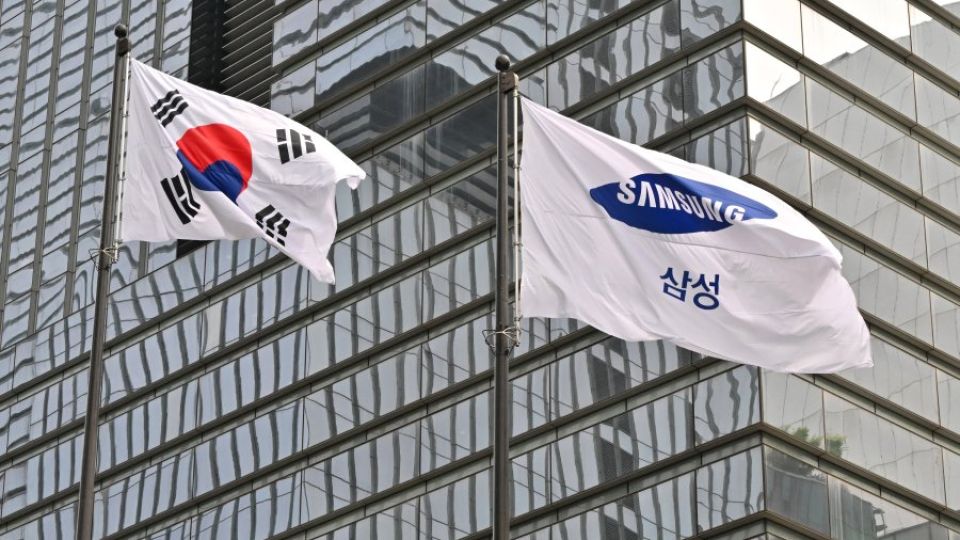January 24, 2025
SEOUL – South Korean conglomerates increased their spending on lobbying in the US last year, with Samsung leading the pack with nearly $7 million.
The escalating lobbying activities in the world’s largest economy appear to be in response to changes in US policies, such as the CHIPS and Science Act and the Inflation Reduction Act, and in preparation for the new Trump administration.
According to the lobbying disclosure reports filed with the Senate on Thursday, Samsung Group spent $6.98 million in Washington in 2024. This total includes expenses from the group’s key affiliates in the US: Samsung Electronics America, Samsung Semiconductor, Samsung SDI America and eMagin, a microdisplay subsidiary of Samsung Display.
Samsung Electronics accounted for the lion’s share of the group’s total spending with $5.45 million.
Data from OpenSecrets, a nonprofit that tracks corporate lobbying activities in the US, shows Samsung’s lobbying budget has steadily increased in recent years, rising from $3.72 million in 2021, to $5.79 million in 2022 and $6.3 million in 2023.
The tech giant’s lobbying agendas spanned an array of issues, including Korea-US relations, CHIPS Act advocacy and implementation, foreign investment, National Defense Authorization Act, telecommunications, privacy regulations, cybersecurity, AI, and tax and immigration issues, according to the company’s filings.
Targets of Samsung’s lobbying activities included the US Congress, Executive Office of the President, Department of Commerce, Department of State, Department of Defense, US Trade Representative and NASA, among others.
SK Group, the nation’s No. 2 conglomerate, came in second, spending $5.59 million in lobbying activities through SK Americas and SK hynix America.
Last year’s figure was lower than SK’s highest-ever lobbying budget in 2021, when the firm spent $6.12 million amid a legal dispute with LG Energy Solution over battery trade secrets. But it increased from $5.28 million in 2022 and $4.33 million in 2023.
SK Group focused on lobbying for trade restrictions, export controls policy, supply chain, semiconductor export controls, the CHIPS Act, IRA, AI, data and digital privacy, green energy manufacturing, EV, biopharmaceuticals, cell and gene therapy, and tax policies.
Hyundai Motor Group spent $3.28 million on lobbying last year. This includes the expenditures of Hyundai Motor, Kia, Hyundai Steel and Hyundai’s US-based subsidiaries Supernal and Boston Dynamics.
The auto giant’s lobbying activities remained steady in recent years, with 2.91 million in 2021, $3.36 million in 2022 and $3.23 million in 2023.
Hyundai’s lobbying efforts were linked to hydrogen and fuel cell policies, EV infrastructure and tax incentives, clean vehicle tax credit under the IRA, and connected vehicle technologies.
Notably, Hanwha Group spent $3.91 million last year, surpassing Hyundai for the first time. Hanwha’s lobbying spending came from its solar energy subsidy Hanwha Q Cells America, which increased its expenditures rapidly from $640,000 in 2021 to $900,000 in 2022 and $1.58 million in 2023.
Hanwha focused on tariffs, IRA, shipbuilding, army ground system and defense-related issues.
LG Group’s lobbying spending was modest compared to other conglomerates but expanded in 2024. LG Electronics USA spent $900,000, and LG Energy Solution allocated $240,000, up from $240,000 and $100,000, respectively, in 2023. But the figures were much lower than in 2021, when LG Energy Solution spent $1.2 million during the battery trade dispute with SK Innovation.
Last year, LG lobbied on issues such as IRA, battery supply chains, tax credits, EV and charging, energy storage system free trade agreements, critical mineral agreements and Advanced Manufacturing Production Credits, and tariffs.


